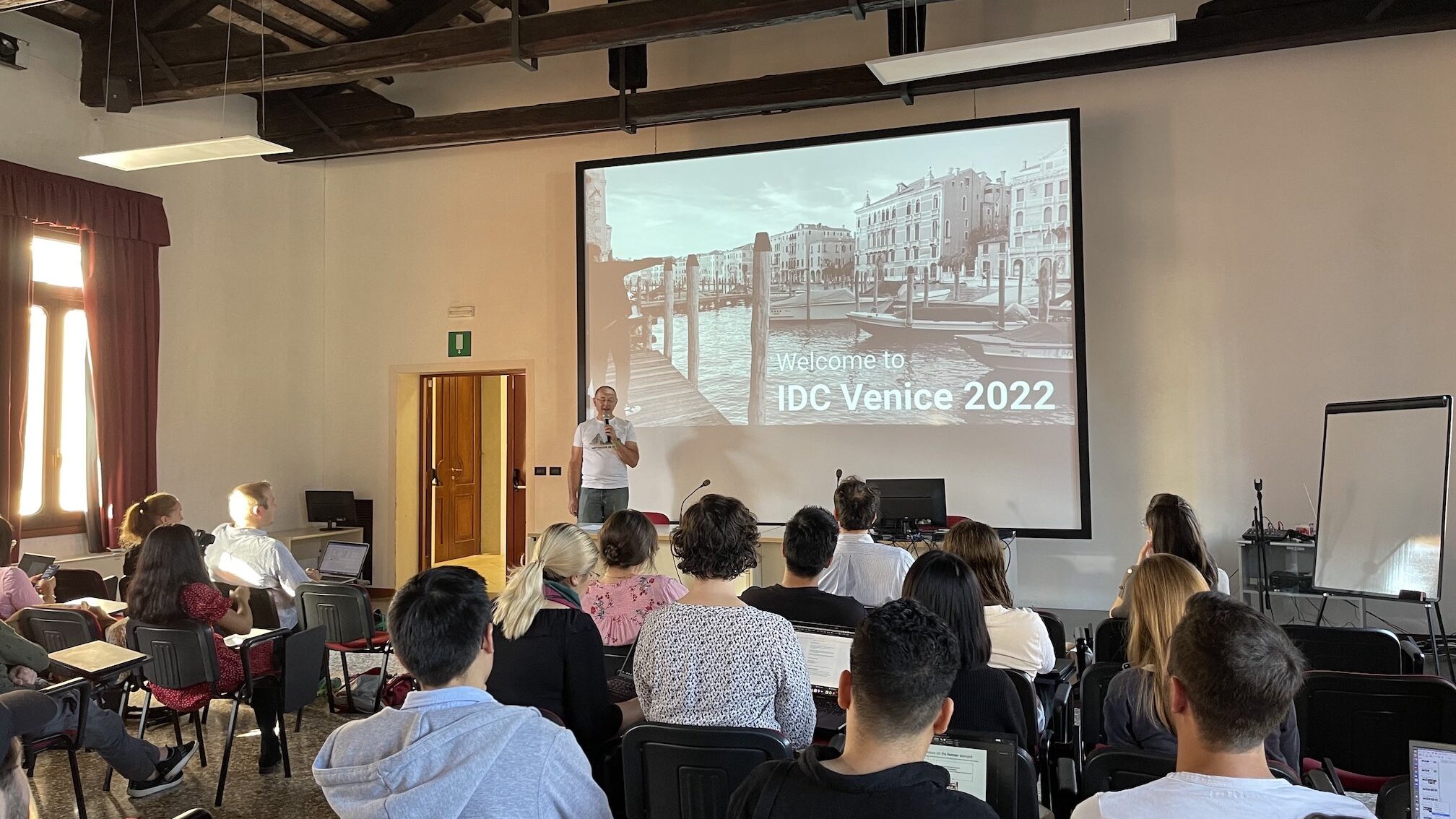
We start each day with one inspiring keynote, to provide new insights, impulses and starting points for discussions during the day. The speakers will be around for large parts of the IDC and can also provide you with feedback for your research.
Our Speakers:
Tuesday: Martin Gjoreski
Title: AI in Affective and Wearable Computing
Abstract: Wearable devices, combined with Artificial Intelligence (AI) methods, can bring significant and sustainable improvements to our lives – from improved patient monitoring and decreased healthcare costs to enhanced sports performance and improved quality of life. Affective computing utilizes the combination of wearables and AI to provide methods for tracking factors related to affective states (e.g., emotions, cognitive load, and stress). Such methods have valuable applicability, including improved human-computer interaction and advanced mental-health management tools. In this talk, Dr. Gjoreski will introduce affective computing and will explain Machine Learning (ML) processing pipelines that can transform raw sensor data into valuable information related to human behavior and affective states. More specifically, he will present examples of classical (feature-based) ML, and deep learning approaches in affective computing based on data from smart watches, smart glasses, eye-trackers, and similar wearable devices. He will also discuss how these approaches can be made more privacy-friendly and explainable.
Wednesday: Kathrin Gerling
Title: Engagement and Empowerment: Reflections on Two Aspirations of HCI Research
Abstract: Research in Human-Computer Interaction aspires to engage and empower people through technology. However, we rarely pause to reflect on the two constructs and their practical implications, both for our work and the communities we engage with. In my talk, I will discuss the role of engagement and empowerment through the perspectives of games research and accessibility: When designing and evaluating games, we routinely focus on engagement as a key indicator of quality, and in the context of accessibility, empowerment is viewed as a core value for designers to aspire to. But is engagement always desirable, and is there a place for disengagement? Who decides what empowerment looks like, and how do we address the risk of disempowerment? The talk will close with a reflection on how more rigorous research practice can contribute to the design of systems and experiences that have potential to engage and empower, but that do so in conversation with users and in a way that appreciates their agency.
Thursday: Fabio Paternò
Title: Humanations: A new understanding of human/automation interaction
Abstract: How people interact with digital technologies is currently caught between the Internet of Things and Artificial Intelligence. In both trends, human control over technology is jeopardized. At the same time, little is happening in terms of innovating how we think and build automations. This is despite the current availability of various types of devices and modalities for supporting user interactions. This talk will discuss concepts and methods that can be useful to address the core challenges of human control over automations involving people, objects, devices, services, and robots. The goal is to identify innovative approaches to support end users, even without programming experience, to understand, create or modify the automations in their daily environments, augmenting human capabilities in managing automations through effective modalities, relevant analytics, explanations, and intelligent recommendations.


